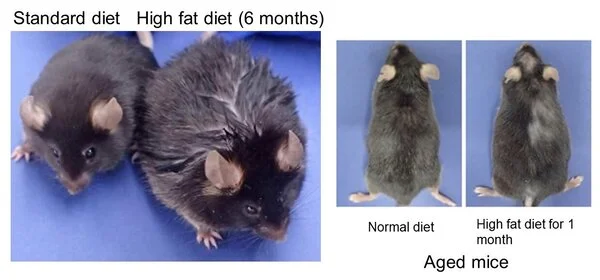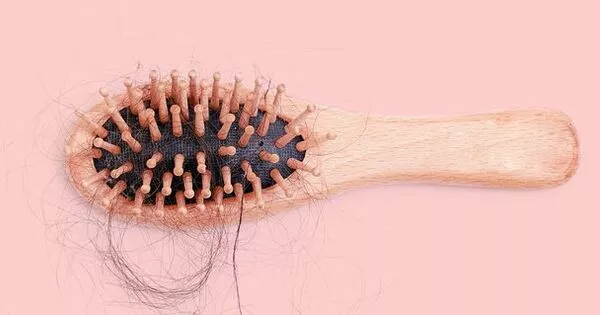Researchers have discovered a molecular mechanism that explains why obesity can cause hair loss. They discovered that stem cells in hair follicles from mice fed a high-fat diet behaved differently than those from mice fed a standard diet. These differences were caused by inflammatory signals in the stem cells, which eventually resulted in hair thinning and loss. These intriguing findings shed light on the complex relationship between obesity and organ dysfunction.
Hair follicles are among your body’s most metabolically active tissues. According to research, hair growth can be affected when you restrict your caloric and/or protein intake or have a micronutrient deficiency. These connections are complex, so if you’re experiencing hair loss, your diet could be the culprit, but so could other factors.
Obesity is well known to be linked to the development of a variety of diseases in humans. Obese people are more likely to suffer from heart disease, diabetes, and other ailments. However, it is unclear how specific body organs deteriorate and lose functionality as a result of chronic obesity.
A group of researchers from Tokyo Medical and Dental University (TMDU) used mouse model experiments to investigate how a high-fat diet or genetically induced obesity can affect hair thinning and loss in a recent Nature article. Obesity, the authors discovered, can lead to the depletion of hair follicle stem cells (HFSCs) via the induction of certain inflammatory signals, preventing hair follicle regeneration and ultimately resulting in hair follicle loss.
High-fat diet feeding accelerates hair thinning by depleting HFSCs that replenish mature cells that grow hair, especially in old mice. We compared the gene expression in HFSCs between HFD-fed mice and standard diet-fed mice and traced the fate of those HFSCs after their activation.
Hironobu Morinaga
Normally, HFSCs self-renew every hair follicle cycle. This is part of the process that allows our hair to continuously grow back. As humans age, HFSCs fail to replenish themselves leading to fewer HFSCs and therefore hair thinning. Although overweight people has higher risk of androgenic alopecia, whether obesity accelerates hair thinning, how and the molecular mechanisms have been largely unknown. The TMDU group aimed to address those questions and identified some of the mechanisms.
“High-fat diet feeding accelerates hair thinning by depleting HFSCs that replenish mature cells that grow hair, especially in old mice.” says lead author of the study Hironobu Morinaga. “We compared the gene expression in HFSCs between HFD-fed mice and standard diet-fed mice and traced the fate of those HFSCs after their activation. “We found that those HFSCs in HFD-fed obesed mice change their fate into the skin surface corneocytes or sebocytes that secrete sebum upon their activation. Those mice show the faster hair loss and smaller hair follicles along with depletion of HFSCs.”

“Even with HFD feeding in four consecutive days, HFSCs shows increased oxidative stress and the signs of epidermal differentiation. The gene expression in HFSCs from the high-fat-fed mice indicated the activation of inflammatory cytokine signaling within HFSCs” describes Emi K. Nishimura, a senior author. “The inflammatory signals in HFSCs strikingly repress Sonic hedgehog signaling that plays crucial role in hair follicle regeneration in HFSCs.
To feed your hair follicles, your body requires sufficient calories and protein. Some experts believe that the more weight you lose, the more likely it is that you will experience some degree of hair loss. Losing and regaining weight over a long period of time can have an effect on your metabolism and hair growth. Some people may experience hair loss within the first 3-6 months of beginning a diet (e.g. keto). A balanced, healthy diet should reverse hair loss within six months if it is temporary.
The researchers confirmed that activating the Sonic hedgehog signaling pathway during this process can prevent HFSC depletion. “This could prevent hair loss caused by a high-fat diet,” said Nishimura.
This study provides interesting new insights into the specific cellular fate changes and tissue dysfunction that can occur following a high-fat diet or genetically induced obesity and may open the door for future prevention and treatment of hair thinning as well as for understanding of obesity-related diseases.





